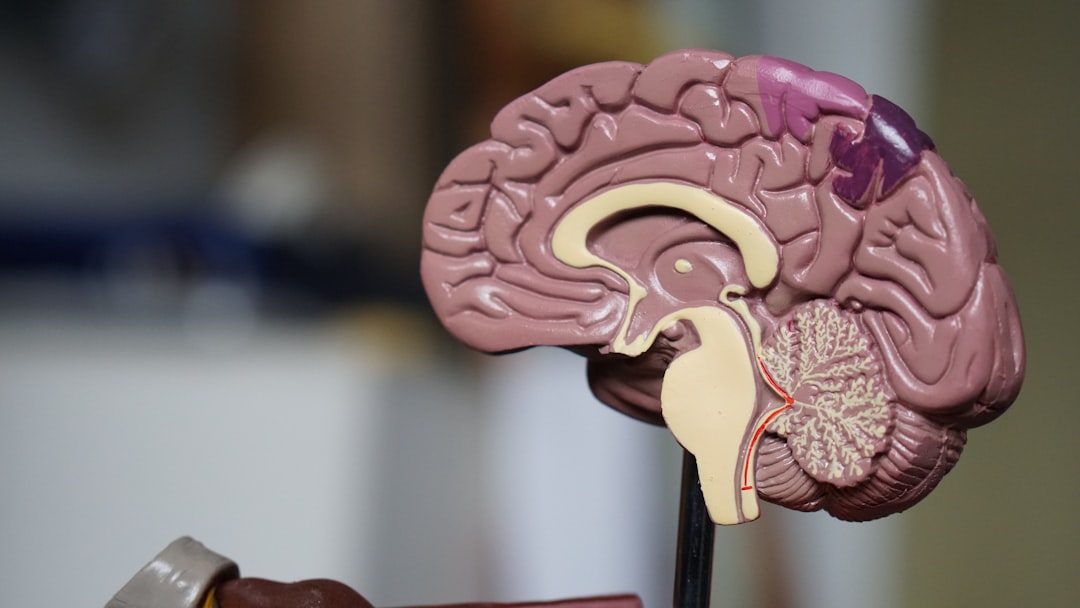What is it about?
Insulin is a hormone that regulates glucose metabolism and other important signaling pathways in mammals. Without insulin, many diseases can occur. People with diabetes often use synthetic insulin to manage their condition. By understanding insulin and related molecules, researchers can develop personalized treatment strategies for diabetes and other metabolic disorders. This richly illustrated atlas provides an overview of insulin from a scientific and medical perspective, including an explanation of insulin-related disorders, how insulin is produced, and how it works at a molecular level. By analyzing insulin and its analogs, researchers can gain insights into the structural dynamics of this important hormone.
Featured Image

Photo by Mykenzie Johnson on Unsplash
Why is it important?
Insulin has played a crucial role in enhancing our knowledge of the underlying mechanisms of metabolic diseases and promoting advancements in peptide chemistry, biochemistry, structural biology, and omics strategies. The global diabetes epidemic has led to a substantial rise in insulin demand. With the progress in recombinant DNA biosynthesis and synthetic chemistry, insulin-oriented optimizations have advanced, leading to successful high-purity insulin production. Moreover, the development of analogs that provide improved basal glucose control has been possible, and insulin therapy has been optimized substantially. However, insulin therapy alone cannot guarantee complete metabolic integrity, and its personalized approach is still lacking. Consequently, the risk of hypoglycemia persists, despite the primary objective of insulin therapy being diabetes elimination. To eliminate insulin-dependent diseases, more functional strategies are required for diagnosis, preventive treatment, and research studies. A holistic and personalized medicine-based approach is essential to treat the root cause of the disease instead of suppressing its symptoms. With technology advancements, incorporating personalized and holistic medicine-based strategies in research and clinical studies will open new avenues to eliminate insulin-dependent diseases from a thousand different perspectives. Therefore, this atlas presents a meticulous account of insulin, with every aspect being thoroughly written and illustrated. The atlas includes carefully crafted illustrations, which have been created from scratch to provide a comprehensive and detailed summary of the literature, surpassing previous reviews in terms of their breadth and detail.
Perspectives
The adoption of a holistic approach to science enables the exploration of numerous pragmatic avenues, fostering more inclusive scientific practices. Although reviews of insulin provide detailed information on specific aspects of the hormone, it is of paramount importance to offer a comprehensive understanding to researchers and scholars with a vested interest in this subject matter. To this end, the present atlas endeavors to present a rigorous exposition of insulin, encompassing every aspect of the hormone in both text and illustrations. Conceived as the product of a year-long research effort by a doctoral student, this atlas features meticulously crafted and informative illustrations, surpassing previous reviews in both breadth and detail. The atlas was designed from scratch to furnish a comprehensive and thorough overview of the literature, providing an exhaustive repository of knowledge on the subject matter.
Esra Ayan
Koc Universitesi
Read the Original
This page is a summary of: A Brief Atlas of Insulin, Current Diabetes Reviews, July 2023, Bentham Science Publishers,
DOI: 10.2174/1573399819666220610150342.
You can read the full text:
Contributors
The following have contributed to this page










